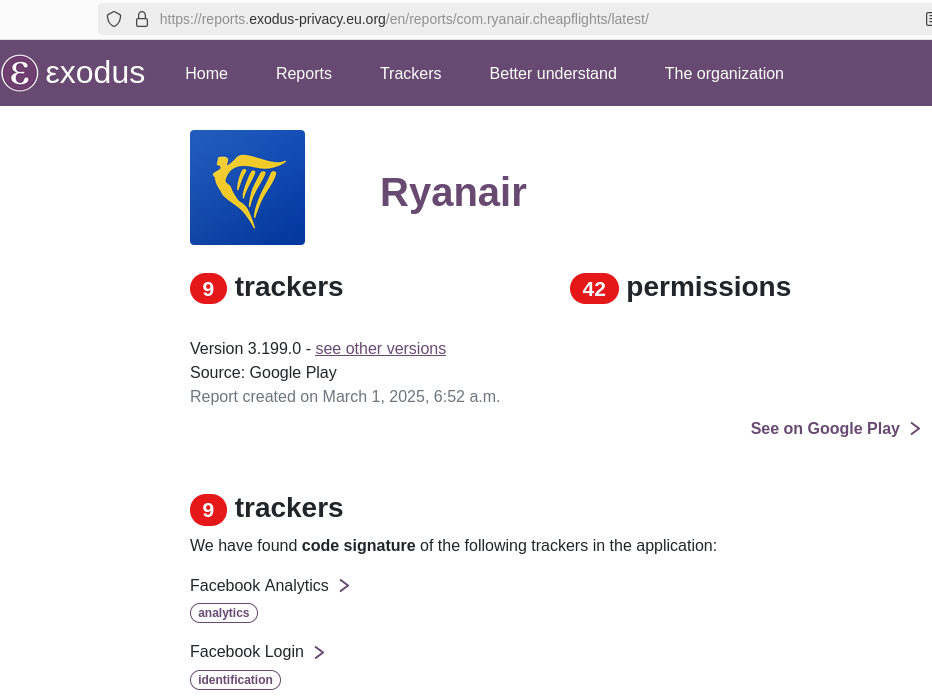As reported in this article, Ryanair will soon be phasing out all paper boarding passes. The change, originally postponed, is to take effect on 3 November 2025. In other words, all travelers will be required to use the company’s mobile application in the very near future to handle their own business.
The low-cost airline cites it wants to “improve customer experience, eliminate airport check-in fees, and save over 300 tonnes in paper waste.”
While this change in user policy may strike you as being positive, I am here to showcase that it’s not:
- Less options is never a good thing, no matter how you look at it. Freedom of choice empowers people, offers a different perspective and encourages critical thinking. How are we supposed to know whether an option is good for us if it is no longer offered?
- What about people who don’t own a smartphone? According to statistics, there is an estimate of around 3 billion people on the planet who either still use a feature phone or have no phone at all. Are they really going to exclude a significant portion of the world’s entire population? Now it’s Ryan but without the air.
- Erosion of privacy - it is easier for Ryanair to track its users, serve them ads and sell their data. Did you know there is a total of 9 trackers (!!!) embedded in the Ryanair mobile application? What is a tracker, you ask? As noted by Exodus Privacy, “a tracker is a piece of software whose task is to gather information on the person using the application, on how they use it, or on the smartphone being used”. And - no surprise here - the application also includes trackers from Facebook and Google, the world’s most infamous advertisers and data miners. Both companies stop at nothing to collect more and more of our data each day. Another tracker present in the Ryanair mobile application stems from an Indian company called InMobi, which is specialized in advertizing. Why would Ryanair, an European airline, resort to doing business with a company outside of Europe? I mean, how can we expect an Indian company to respect and apply GDPR which is intrinsic to the EU? Yes, it is actually that bad and, of course, you have no clue what InMobi does with your personal data after it has been collected. Check out this link for the complete list of trackers or the screenshot below if you want to have a look for yourself.
- Have you ever experienced one of these long-haul flights (7 hours or longer) with multiple layovers where your only hope of boarding the next plane is to have a printed version of your boarding pass? Well, I certainly have as a regular solo traveler to South-East Asia. What happens then when your smartphone suddenly runs out of battery and you need that boarding pass so badly? Well, I think we all know the answer to that question: you ain’t gonna board that plane, buddy! Your only salvation is to travel with a friend who not only shares the same booking but also has more battery life than you. Should we consider ourselves lucky that Ryanair doesn’t offer long-distance flights? Sorry but still not a relief. Some phone batteries are really bad, especially as they age, and you can’t just swap the battery in the middle of a flight (unless you have a Fairphone or HMD Global device but most people don’t).
- The carbon footprint of one average flight is much worse than any pile of paper boarding passes. And to pretend otherwise is simply a lie. The practice of so-called environmental concern of a company while their business model clearly screams the opposite is called “greenwashing”. It is a trick mostly used by - you guessed it already - environmentally unfriendly companies, and highly criticized for that, to make them feel good about their choices and improve their public image. In reality, the change doesn’t really make a lick of difference in the grand scheme of things.
My conclusion? I think you already know my conclusion! 😉

#Travel #Flight #Ryanair #Boarding pass #Paper #Digital #Privacy #English